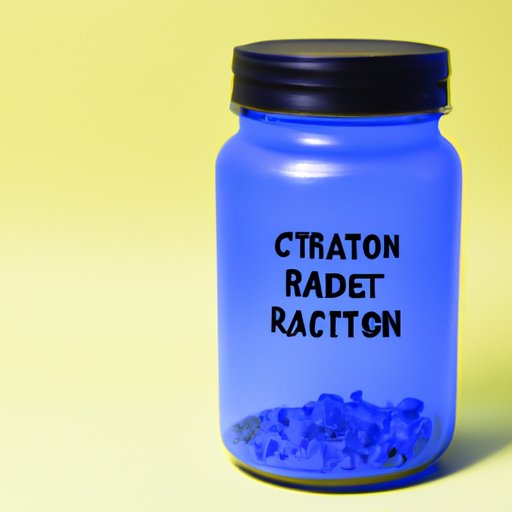
Should You Take Creatine on Rest Days?
For those who follow a strict workout routine, rest days are like a sanctuary where the body can recover and rebuild. However, many people wonder if they should continue taking creatine on rest days – a question that is vital to optimize muscle recovery. In this article, we will explore the benefits and risks of taking creatine on rest days and provide recommendations to help you achieve optimal muscle recovery.
What is Creatine?
Creatine is a naturally occurring substance found in muscles, which provides energy during high-intensity exercise and helps in building muscles. Creatine supplements are popular among athletes and fitness enthusiasts to enhance physical performance and increase muscle mass.
But taking creatine on rest days is a critical issue that needs to be addressed.
Benefits of Taking Creatine on Rest Days
Improved Muscle Recovery
One of the significant benefits of taking creatine on rest days is that it can improve muscle recovery. Creatine supplementation can help with the restoration and repair process of muscle fibers that are damaged during exercise.
Creatine helps increase the amount of phosphocreatine in the body, which aids in ATP (adenosine triphosphate) production – the energy source for muscle cells. This increased ATP production speeds up the muscle recovery process and reduces the risk of injury.
Reduced Muscle Soreness and Damage
Creatine can also reduce muscle soreness and damage caused by intense exercise. A study published in the Journal of the International Society of Sports Nutrition revealed that creatine supplementation significantly reduced muscle soreness after eccentric exercises (exercises that involve lengthening of muscles during contraction).
Maintaining Muscle Mass During Rest Days
During rest days, the body is in a catabolic state (a state where the body breaks down complex molecules into simpler ones). It means that the body’s muscle protein synthesis rate is less than the muscle protein breakdown rate.
However, taking creatine on rest days can help maintain muscle mass, preventing the breakdown of muscle proteins and keeping the muscles in an anabolic state (a state where the body synthesizes complex molecules from simpler ones). This, in turn, ensures that the body is prepared for the next set of workouts.
Potential Risks of Taking Creatine on Rest Days
Dehydration Risks
Creatine can cause the body to retain water, which can lead to dehydration. Therefore, it is crucial to drink an adequate amount of water when taking creatine on rest days.
Potential Side Effects of Creatine Use
Creatine supplementation can also cause side effects such as stomach cramping, diarrhea, and nausea. Therefore, it is best to start with a small dosage and gradually increase it as per a medical professional’s recommendations.
Additionally, people with existing kidney or liver problems should avoid taking creatine or consult their doctor before doing so.
Minimizing Risks
The risks of taking creatine can be minimized by choosing high-quality supplements and following the recommended dosage. It is best to consult a medical professional before starting creatine supplementation.
Alternatives to Taking Creatine on Rest Days
Supplements such as protein powder, amino acids, and glutamine can also aid in muscle recovery on rest days. Protein powder provides the body with the necessary amino acids to maintain and repair muscle tissue, while amino acids such as BCAAs (branched-chain amino acids) trigger muscle protein synthesis.
Glutamine is another supplement that can reduce muscle damage caused by intense exercise and enhance muscle recovery. Athletes and fitness enthusiasts looking for alternatives to creatine on rest days can benefit significantly from these supplements.
The Science Behind Creatine and Muscle Repair on Rest Days
Research shows that creatine supplementation might improve muscle recovery and repair on rest days. Creatine helps increase the production of ATP, which provides energy for muscle cells to recover and rebuild.
ATP production is vital for proper muscle repair as it helps supply the necessary energy for muscle cells to perform their functions. Creatine ensures that the body has enough ATP to power muscle repair processes even during rest days.
Unique Functions of Creatine on Rest Days Compared to Workout Days
Creatine’s function differs on rest days compared to workout days because muscles require energy for repair and growth during rest days. Creatine helps increase the production of ATP, which provides energy for muscle recovery, prevents muscle deterioration and prepares muscles for the next set of workout sessions.
Dosage Recommendations for Taking Creatine on Rest Days
It is recommended to take 5-10 grams of creatine per day, regardless of whether it’s a workout or a rest day. However, some people may require less creatine during rest days as there is no intense exercise session to recover from. It is best to consult a medical professional about the proper dosage of creatine for you.

The Importance of Proper Hydration when Taking Creatine on Rest Days
Staying hydrated is crucial when taking creatine on rest days. Creatine supplementation can cause the body to retain water, which can lead to dehydration. It is essential to drink an adequate amount of water throughout the day to minimize the risk of dehydration.
It is recommended to drink at least 2-3 liters of water per day when taking creatine on rest days. Additionally, it is best to avoid alcohol and caffeine as they can dehydrate the body.
Conclusion
In conclusion, taking creatine on rest days can be beneficial in aiding muscle recovery and growth. However, it is important to consider the potential risks of dehydration and side effects before taking creatine. Alternatives such as protein powder, amino acids, and glutamine can also provide similar benefits to creatine.
Additionally, staying hydrated is crucial when taking creatine to minimize the risk of dehydration. Consultation with a medical professional regarding appropriate dosage is advisable for people with existing health problems.
By following these recommendations, you can ensure that you use creatine effectively on rest days, optimizing muscle recovery and growth.





